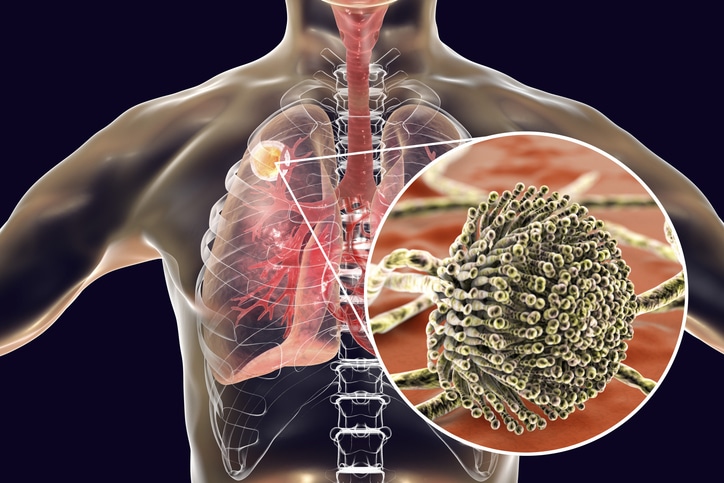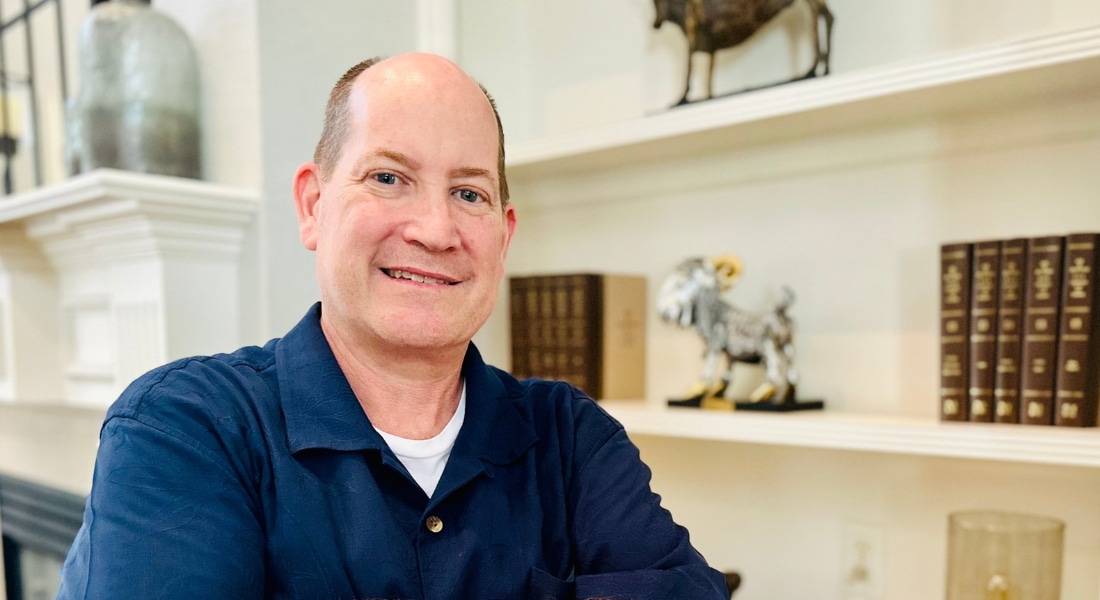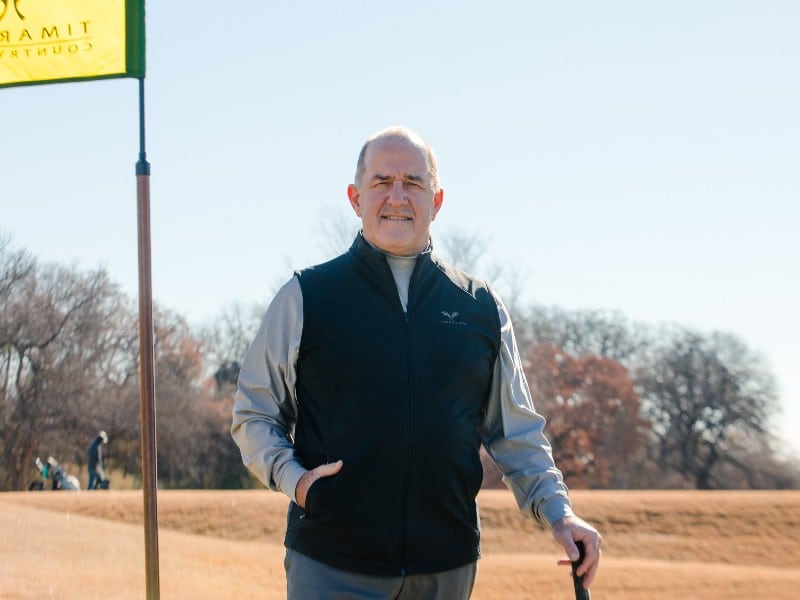Mark Nielsen had been struggling to catch his breath for a week when his wife decided to drive him to the ER at Methodist Southlake Medical Center — just in time to have a large hole in his lung repaired and a mysterious mass removed.
“My breathing was getting worse,” Mark says. “I told my wife I wanted her to take me to the ER after she got back from church, but she insisted we go right away.”
The 54-year-old intellectual property attorney found no relief from the antibiotics his allergist prescribed — and for a good reason. His lung infection was not bacterial but fungal, a moldy mass in the lungs known as a pulmonary aspergilloma.
Having recently relocated from California, Mark and his wife, Maria, took a chance on Methodist Southlake, which was just down the road from their church. They’re both glad they did.
“I can’t tell you how impressed Maria and I were with the care I received on the ICU floor,” Mark says. “Not a single thing could have been better.”
NO CLEAR CAUSE
When Mark and his wife moved to Southlake in 2022, after decades in Southern California, they knew they would have to find new healthcare providers and learn which hospitals were best.
What they didn’t know was how urgent their healthcare needs would be after Mark came in contact with fungal spores that led to a lung infection affecting an estimated 1 in 100,000 people.
In May 2024, Mark was quickly admitted to the emergency department at Methodist Southlake and underwent a chest X-ray that showed his right lung had collapsed without an obvious cause, such as a traumatic injury. The medical staff acted quickly to re-inflate his lung using a chest tube.
“I was so impressed by how efficiently and seamlessly the doctors and nurses worked,” Mark says. “Within 20 minutes, they had placed the chest tube, re-inflated my lung and brought Maria back into the room to talk about the next steps.”
Mark was moved upstairs to the ICU for further monitoring because his lung would not stay inflated. That’s where his healthcare team would discover the apparent source of the infection and decide surgery was necessary to close the hole in his lung.

Mark’s surgeon removed a small fungal mass that likely caused his lung to collapse.
SCAN REVEALS MASS
Two doctors evaluated Mark’s situation and offered treatment suggestions: James Anderson, MD, cardiothoracic surgeon on the medical staff at Methodist Southlake, and Amit Mann, MD, pulmonologist and critical-care physician on the medical staff at Methodist Southlake.
“Both Dr. Mann and I felt that the hole was too large to reseal without surgical intervention,” Dr. Anderson says, “and after we presented our reasons, Mark and Maria were confident in this path, as well.”
During an imaging scan, the team also found a small mass that a surgeon would need to remove. Subsequent testing revealed it to be fungal, rather than bacterial or cancerous.
“The fungal ball probably ruptured, and that’s what caused his lung to collapse,” Dr. Anderson says. “That was the twist in this case.”
Dr. Anderson suspects Mark came in contact with the fungal spores while traveling.
“There are certain areas of the country where different fungi are regional,” he says, “and he has traveled to some areas where they are endemic.”

Mark and Maria are well-traveled and eager to get back to their globe-trotting ways.
MINIMALLY INVASIVE
On May 15, Dr. Anderson performed laparoscopic thoracic surgery to close the hole in Mark’s right lung with surgical staples. He also removed the 4-millimeter ball from the same area — all in around 30 minutes.
“His minimally invasive surgery allowed him to go home three days later with orders to take it easy for a few days,” Dr. Anderson says. “No major recovery period necessary.”
Reflecting on his surgery weeks later, Mark and Maria are grateful they trusted Methodist Southlake, where they received care that exceeded their highest expectations.
“We want our community to know that Methodist Southlake is a full-service, top-notch hospital with excellent specialists, doctors and nurses,” Mark says. “I felt like I was in very capable hands.”






